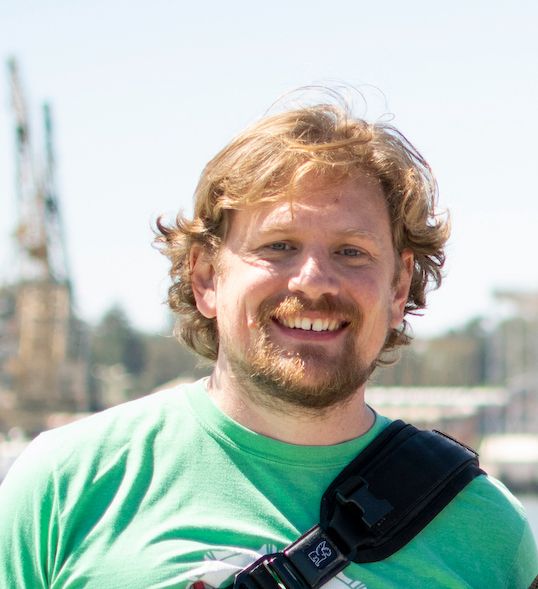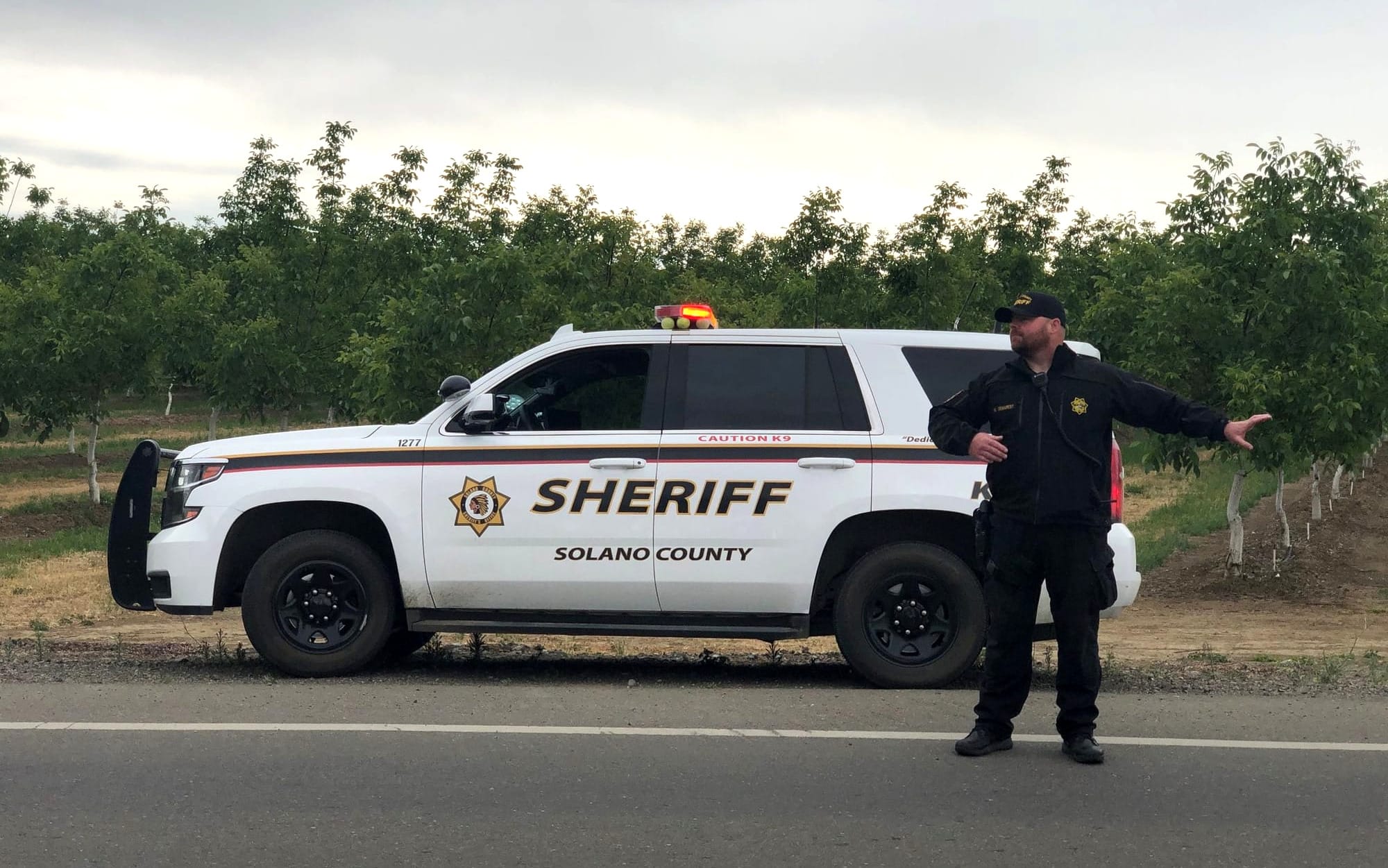VALLEJO – The American Civil Liberties Union of Northern California filed a legal action against the city of Vallejo on Tuesday to compel the city to release records relating to the police department’s notorious badge-bending scandal, in which officers bent the tips of their star-shaped badges after on-duty shootings.
In particular, the ACLU seeks to compel the city to release an investigatory report completed by former Sonoma County Sheriff Rob Giordano, whom the city hired to conduct an outside investigation of the practice after it became public two years ago.
Giordano’s 150-page report was completed in September 2021, but the city has refused to release it, arguing that it is a police personnel record and exempt from disclosure under California law. The ACLU argues that it is not a personnel record, and even if it were, it is required to be disclosed because it involves use of deadly force by officers.
Emi Young, an attorney with the ACLU, pointed out that the city announced its investigation into badge bending in response to media reports describing the practice to show that it was taking the allegations seriously. But the city has attempted to hide any information about the completed investigation and any actions taken as a result.
"In the absence of that kind of information residents are left without any idea whether meaningful investigation was done here and any recourse to seek further discipline or investigation," Young said.
The city’s refusal to release the report has been a source of contention from people seeking police reform and has led to tense protests in city hall.
The Vallejo City Attorney’s Office did not immediately respond to a request for comment.
The ACLU’s petition, which was filed in Solano County Superior Court on Tuesday, recaps the Vallejo Police Department’s use of deadly force over the last 20 years, as Vallejo police officers have shot 56 people, killing 30.
The petition points out that there is a significant racial disparity to how Vallejo police officers use force as 22% of Vallejo residents are Black, but only 7% of officers, and half of use of force incidents between 2017 and 2019 were against Black residents, according to department data.
The ACLU further alleges that efforts to reform the department during that time have stalled in the face of resistance by the powerful Vallejo Police Officers Association. But a series of high-profile incidents in recent years have led to more revelations about the police department’s culture, including the badge-bending scandal.
The Vallejo police shooting of Willie McCoy in 2019 received national attention. Six officers fired 55 times into McCoy’s car while he was unresponsive in the driver’s seat allegedly with a gun on his lap. After that, the department became aware that one of the officers, Ryan McMahon, had added a plate to his gun with the words “Veritas” and “Aequitas," meaning “truth and justice,” a reference to the violent 1999 film Boondock Saints.
As the alterations to his gun were investigated, McMahon turned in his badge to department superiors, who noticed it had two bent tips, according to a wrongful termination suit later filed by former police Capt. John Whitney. Whitney’s suit alleges that McMahon said that the bent tips “signified the two people he had killed in the line of duty.”
Whitney publicly revealed the practice in 2020 and the department launched an investigation days later, hiring Giordano to conduct it. But once Giordano’s investigation was complete, the city and police department refused to make his findings public.
Testimony in a criminal case in March provided the most detailed public accounting of the badge bending tradition to date. Former Lt. Kent Tribble testified that he started the practice when he transferred from the Concord Police Department in 2003.
Some officers testified that Tribble bent their badges against their will, and that they attempted to correct it but did not report it to superiors. But Solano County Superior Court Judge Daniel Healy scoffed at Giordano’s characterization of some officers as “victims” of the practice.
Giordano himself testified about his investigation, including that he did not seek records from badge manufacturer the Ed Jones Co.
Healy, who reviewed Giordano’s report, said it had “no value” and criticized the city for not attempting to answer residents’ questions about the scandal, but he declined to order the city to release the report.
“I think the community has suffered grievous harm,” Healy said in March. “The specter of silence just leaves the community wondering what happened here.”
Records from the Ed Jones Co. obtained by the Vallejo Sun show that at least one officer who had been involved in a shooting sent his badge for repairs to “straighten the point above ‘E’ in Vallejo” and billed the repair to the department.
The ACLU submitted a public records request in January seeking records of Giordano’s investigation, but the city denied the request, arguing that the records were exempt from disclosure under state law which prohibits the release of police officer personnel records.
The ACLU’s petition argues that the records are not personnel records because Giordano’s investigation was not initiated for the purpose of evaluating discipline against any officer and has not resulted in any discipline against any officer.
However, even if the records are personnel records, the ACLU argues that they must be released under state law. The state legislature amended the law restricting the release of police personnel records in 2018 when it passed SB 1421, which required the release of personnel records for incidents when an officer engaged in a use of deadly force.
Citing Tribble’s testimony, the ACLU argues that “badge-bending was inextricably tied to officers discharging their weapons — the purpose of badge-bending was to commemorate an officer’s having fired his gun. ACLU seeks records pertinent to badge-bending.”
According to Young, the ACLU attorney, the city argued that the badge bending investigations are separate from the investigations into police shootings and therefore aren’t disclosable under the transparency law.
“That argument really turns on that these disclosures came out much later but doesn't address that the practice was very clearly tied to being involved in shootings,” Young said.
Avram Frey, the ACLU’s Deputy Director of the Criminal Justice Program, said that the badge banding scandal was “a slap in the face of the community and the cover up just adds insult to injury.”
Frey said that once they review the report, the ACLU can hone its advocacy depending on whether the investigation was competently handled and discipline was appropriately administered.
“This is kind of the opening salvo from us,” Frey said. “We're expecting further advocacy relating to the Vallejo Police Department depending on what we get.”
Editor's note: This story has been updated to clarify that McMahon did not tell Whitney directly why his badge was bent.
Before you go...
It’s expensive to produce the kind of high-quality journalism we do at the Vallejo Sun. And we rely on reader support so we can keep publishing.
If you enjoy our regular beat reporting, in-depth investigations, and deep-dive podcast episodes, chip in so we can keep doing this work and bringing you the journalism you rely on.
Click here to become a sustaining member of our newsroom.
THE VALLEJO SUN NEWSLETTER
Investigative reporting, regular updates, events and more
- courts
- policing
- Vallejo
- Vallejo Police Department
- Vallejo Police Officers Association
- American Civil Liberties Union
- Badge bending
- Rob Giordano
- Willie McCoy
- Ryan McMahon
- John Whitney
- Kent Tribble
- Daniel Healy
- Ed Jones Co.
- Emi Young
- Avram Frey
- Solano County Superior Court
- SB 1421

Scott Morris
Scott Morris is a journalist based in Oakland who covers policing, protest, civil rights and far-right extremism. His work has been published in ProPublica, the Appeal and Oaklandside.
follow me :




